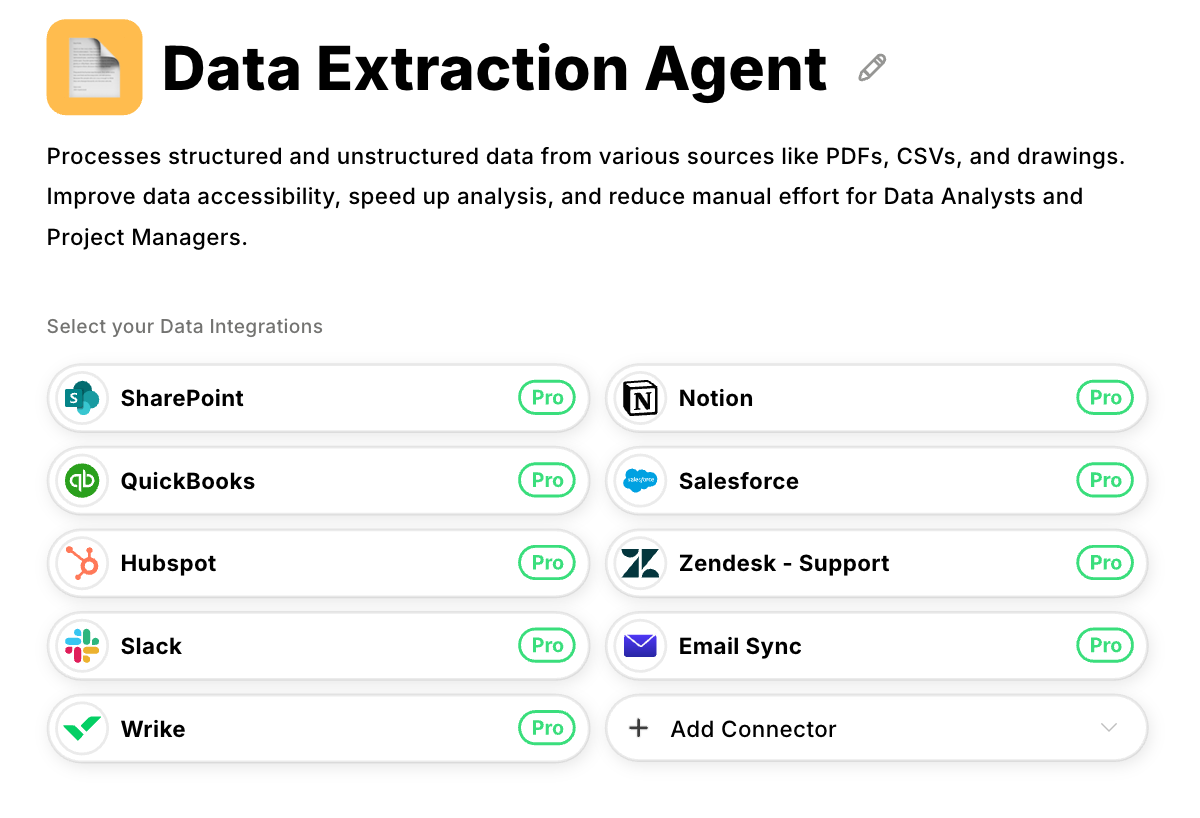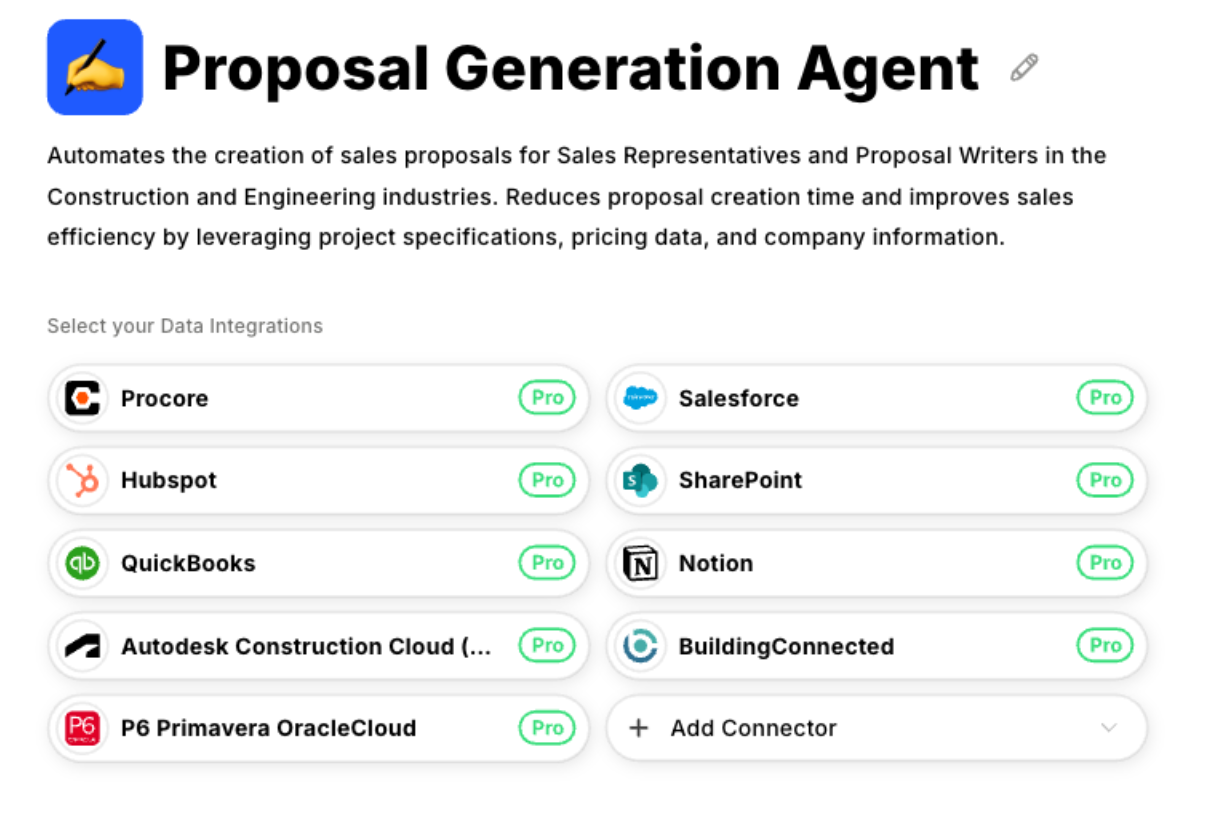How long does an RFP response take? It depends on your industry and project size. Small to medium-sized construction projects typically require a minimum 2 weeks. Commercial real estate runs 2-3 weeks. Insurance RFPs? 6-10 weeks. If you're consistently missing these timelines or losing to faster competitors, you need to automate your processes.
Here's the issue. Most of that time disappears before anyone writes a single word. Requirements extraction takes five days. Searching for past proposal content takes another week. Compliance tracking adds three more. Your team finally starts drafting, and the deadline is already breathing down your neck.
The problem compounds from there. Rushed writing means lower quality. Lower quality means lost bids. Meanwhile, competitors using automation are extracting requirements in hours and submitting while you're still reading through Section K, looking for bonding requirements.
You're losing opportunities not because your solutions are weaker, but because you can't move fast enough. We'll walk through where those weeks actually go and show you how automation cuts the timeline in half without sacrificing accuracy.
Process Requirements Automatically
Manually extracting requirements from a complex RFP? Five to seven days. With automation? Hours.
Requirements extraction creates two bottlenecks. First, requirements get missed because they're buried everywhere. Insurance certificates live in Appendix C. Bonding thresholds hide in Section K.
Technical certifications appear in annexes that don't even make the table of contents. You're reading the document multiple times, cross-referencing sections, hoping you caught everything. Miss one requirement and your proposal gets rejected before anyone reads it.
The second problem is capacity. You need to extract requirements before drafting starts. Can't work on Proposal B while you're reading Proposal A. Got five proposals? You're processing them one by one.
That's weeks of extraction while deadlines pass. You either decline opportunities or rush through extraction and risk missing critical requirements.
Datagrid’s AI agents fix both problems. They scan entire documents and catch every mandatory requirement, no matter where it's hiding. Pass/fail items, evaluation criteria, and compliance checkpoints, you get structured lists immediately.
Better yet, they handle multiple documents at once. Your team drafts one RFP while agents process three others in parallel. A week of manual reading becomes a few hours. Teams that could only manage three RFPs per month can now handle ten.
Automate Past Proposal Search to Save Manual Work
Finding relevant content from past proposals takes another whole week. You know your team has responded to similar requirements before, but nobody remembers which project or where the files are stored.
The search starts with asking around. "Does anyone remember that hospital project from 2022?" Someone thinks it might be in the old SharePoint. Another person suggests checking archived project folders. Maybe someone's local drive has a copy.
When you finally find something useful, it's buried in a 150-page proposal from three years ago. You read through it looking for the sections that match your current RFP. Then you realize the technical specifications have changed, so you need to find a more recent example.
Most teams eventually give up and recreate content from scratch. It's faster than continuing to search, even though you're essentially redoing work someone already completed. This happens on every RFP. Your team rebuilds capability statements, rewrites project descriptions, and recreates technical approaches that already exist somewhere in your files.
You can eliminate this entire search process. Datagrid's agents index all your historical proposals and automatically surface relevant sections. Need past responses about a specific technical capability?
The agents pull every instance where you've addressed it, sorted by recency and relevance. Looking for similar project experience? They find comparable case studies from your entire proposal history.
The difference is immediate. What took a week of searching and asking around now takes minutes.
Use AI agents to Track Compliance without Spreadsheets
Complex RFPs have 50+ compliance requirements scattered throughout the document. Tracking them all manually adds three to five days to your timeline.
You build a spreadsheet. One row per requirement. Columns for status, owner, section reference, and completion date.
The spreadsheet becomes your coordination hub, but maintenance is constant. Requirements appear in multiple sections and need cross-referencing. The RFP says bonding must meet Section 7 standards, so you add a note and hope whoever writes the bonding section remembers to check it. Technical specifications reference compliance items mentioned 80 pages earlier.
Then amendments arrive. The issuer updates bonding thresholds or adds a new certification requirement. You're searching through your spreadsheet to find every affected item, updating statuses, and notifying section owners.
The final week is worse. You're checking off requirements as sections get completed, cross-referencing between your tracking sheet and the actual proposal.
You can automate this entire tracking process. Datagrid's agents identify all requirements during extraction and monitor them throughout the response. When amendments arrive, agents update the tracking and flag which sections are affected. You see real-time status without maintaining spreadsheets.
Automate Content Assembly to Prevent Last-Minute Scrambles
Content assembly takes the entire final week. You're copying sections from multiple sources, reformatting everything to match, and fixing inconsistencies that surface during final review.
Your team has been writing sections independently. Technical specs in one document. Pricing in a spreadsheet. Past project descriptions in old proposals. Compliance sections in someone's draft. Now everything needs to come together into one cohesive proposal.
The copy-paste marathon begins. Technical content needs reformatting. Pricing tables require restructuring. Project descriptions use different terminology, so you're editing for consistency. Headers, page numbers, and cross-references all need updating.
Inconsistencies emerge. Your technical approach promises a specific methodology, but pricing assumes something different. Timelines don't match across sections. Capability statements contradict limitations mentioned elsewhere. Each inconsistency requires tracking down the original author and updating multiple sections.
Version control becomes chaos. You're working in the master document while contributors send updates via email. Someone makes changes to an older version. Final review catches errors that require reopening completed sections.
Automation changes this. Datagrids agents assemble content from all sources while maintaining consistency. They cross-reference technical claims against pricing, verify timelines align, and flag contradictions. Assembly happens throughout drafting instead of during a chaotic final week.

Create Section Drafts Instantly to Speed Up Writing
Response drafting takes one to two weeks. Your team stares at blank pages, recreates content from old proposals, and writes technical sections from scratch.
Each section starts the same way. You're trying to remember what you said about this capability last time or how you described your approach on a similar project. You're searching through old documents again, finding fragments of relevant content, and rewriting everything to fit the current RFP.
Technical sections take the longest. Your engineers are busy with active projects. They can't drop everything to write proposal content. When they finally have time, they're starting fresh because nobody documented the technical approach from the last similar project.
The same capability descriptions get rewritten slightly differently each time.
Project descriptions need to be customized for each RFP. You have 20 past projects that could work as examples, but pulling the correct details and tailoring them to match the issuer's evaluation criteria takes days.
Each project description requires finding the original proposal, extracting relevant information, and restructuring it to address current requirements. The writing phase drags because everything is manual. Your team knows this content exists somewhere, but recreating it is faster than finding and adapting it.
Datagrids agents accelerate this entire phase. They generate draft sections using your extracted requirements and historical proposal content.
Technical approach sections are drafted using your previously approved content and the current RFP requirements. Project descriptions are pulled from your history and structured to match evaluation criteria.
Catch Missing Requirements Early With Continuous Verification
Final verification takes one to two days before submission. You're checking that every extracted requirement was actually addressed somewhere in your 100-page proposal.
You open your requirements tracking spreadsheet next to your proposal document. First requirement on the list: insurance certificate with specific coverage amounts. You search the proposal for "insurance" and scan through the results to verify that the coverage amounts match. Check mark in the spreadsheet. Next requirement.
This continues for 50+ requirements. Some are straightforward. Others reference multiple sections that need cross-checking.
The RFP required technical specifications that meet specific standards, and you need to verify that your technical section actually addressed those standards with the right level of detail.
Gaps surface during this check. A compliance item nobody addressed. A technical requirement was mentioned but not fully explained. Each gap discovered this late creates emergency scrambling with the deadline approaching.
Fortunately, Datagrid’s AI agents automate this verification throughout the drafting process. They continuously cross-reference the extracted requirements against your proposal sections. As content gets written, agents flag gaps before the final week.
The final check becomes a quick review instead of two days of manual verification.
Speed Up Your RFP Response Process With AI Agents
Weeks spent extracting requirements, hunting for past content, maintaining compliance spreadsheets, and assembling sections manually. Each RFP follows the same slow process, while competitors submit faster.
Most teams accept this as the reality of complex proposals, but it doesn't have to be.

Datagrid automates the time-consuming bottlenecks.
- Extract requirements in hours instead of days: Process entire RFP documents simultaneously and identify every requirement regardless of location. Teams that spent a week on extraction now complete it in hours while pursuing multiple RFPs in parallel.
- Find past proposal content instantly: Stop searching through folders and SharePoint for relevant sections. Agents surface proven content from your entire proposal history automatically. What took a week of hunting now takes minutes.
- Eliminate compliance tracking overhead: Agents monitor all requirements throughout the response cycle and update automatically when amendments arrive. No more days of maintaining spreadsheets and cross-referencing manually.
- Accelerate drafting with AI-generated sections: Generate technical approaches, project descriptions, and capability statements using your historical content and current requirements. Your team edits instead of starting from blank pages.
- Verify requirement coverage continuously: Agents flag gaps as drafting occurs, rather than discovering missing content two days before the deadline. Final checks become quick reviews instead of two-day verification marathons.
Ready to respond to more RFPs without extending your timeline?













